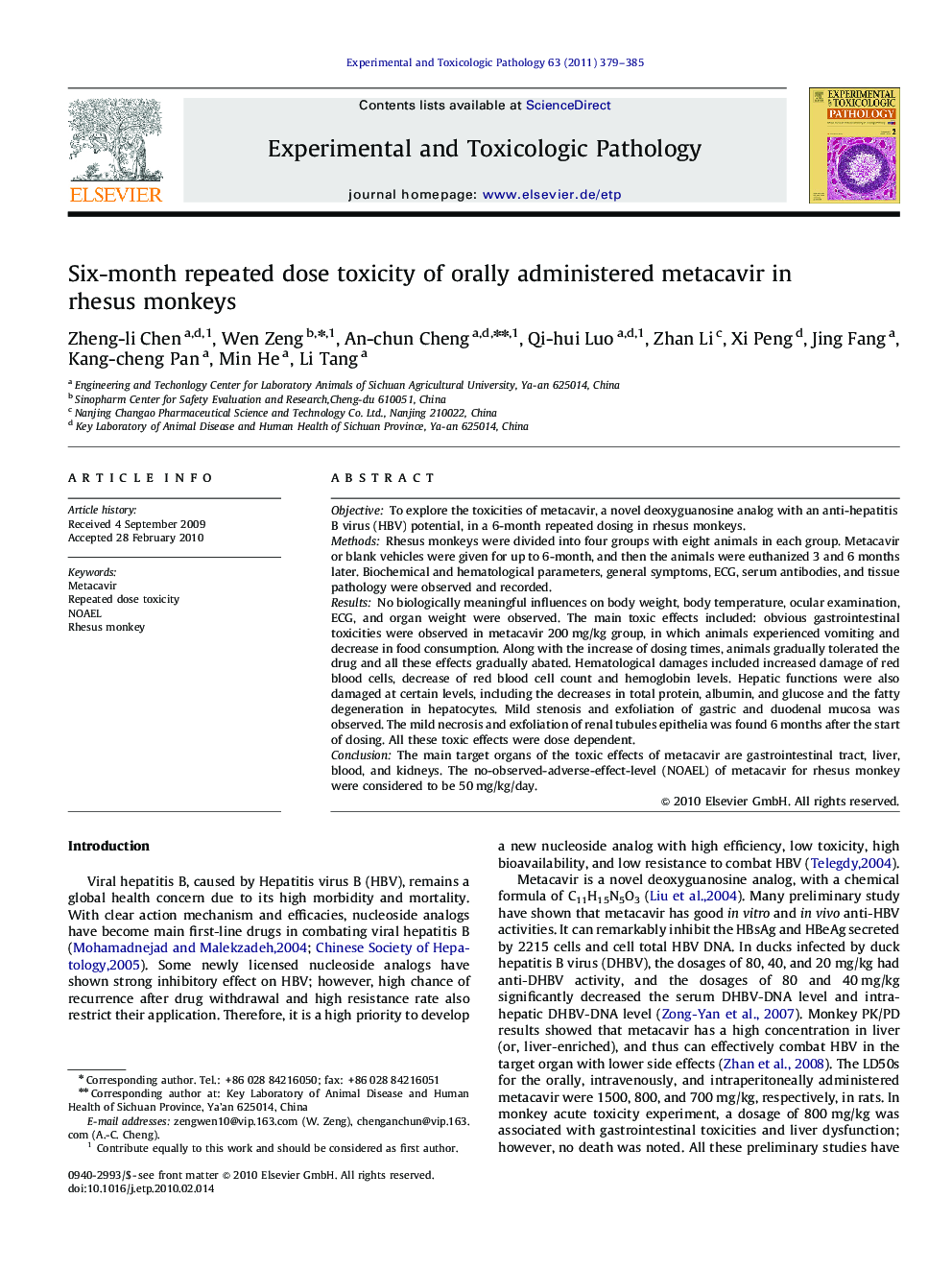| Article ID | Journal | Published Year | Pages | File Type |
|---|---|---|---|---|
| 2498958 | Experimental and Toxicologic Pathology | 2011 | 7 Pages |
ObjectiveTo explore the toxicities of metacavir, a novel deoxyguanosine analog with an anti-hepatitis B virus (HBV) potential, in a 6-month repeated dosing in rhesus monkeys.MethodsRhesus monkeys were divided into four groups with eight animals in each group. Metacavir or blank vehicles were given for up to 6-month, and then the animals were euthanized 3 and 6 months later. Biochemical and hematological parameters, general symptoms, ECG, serum antibodies, and tissue pathology were observed and recorded.ResultsNo biologically meaningful influences on body weight, body temperature, ocular examination, ECG, and organ weight were observed. The main toxic effects included: obvious gastrointestinal toxicities were observed in metacavir 200 mg/kg group, in which animals experienced vomiting and decrease in food consumption. Along with the increase of dosing times, animals gradually tolerated the drug and all these effects gradually abated. Hematological damages included increased damage of red blood cells, decrease of red blood cell count and hemoglobin levels. Hepatic functions were also damaged at certain levels, including the decreases in total protein, albumin, and glucose and the fatty degeneration in hepatocytes. Mild stenosis and exfoliation of gastric and duodenal mucosa was observed. The mild necrosis and exfoliation of renal tubules epithelia was found 6 months after the start of dosing. All these toxic effects were dose dependent.ConclusionThe main target organs of the toxic effects of metacavir are gastrointestinal tract, liver, blood, and kidneys. The no-observed-adverse-effect-level (NOAEL) of metacavir for rhesus monkey were considered to be 50 mg/kg/day.
